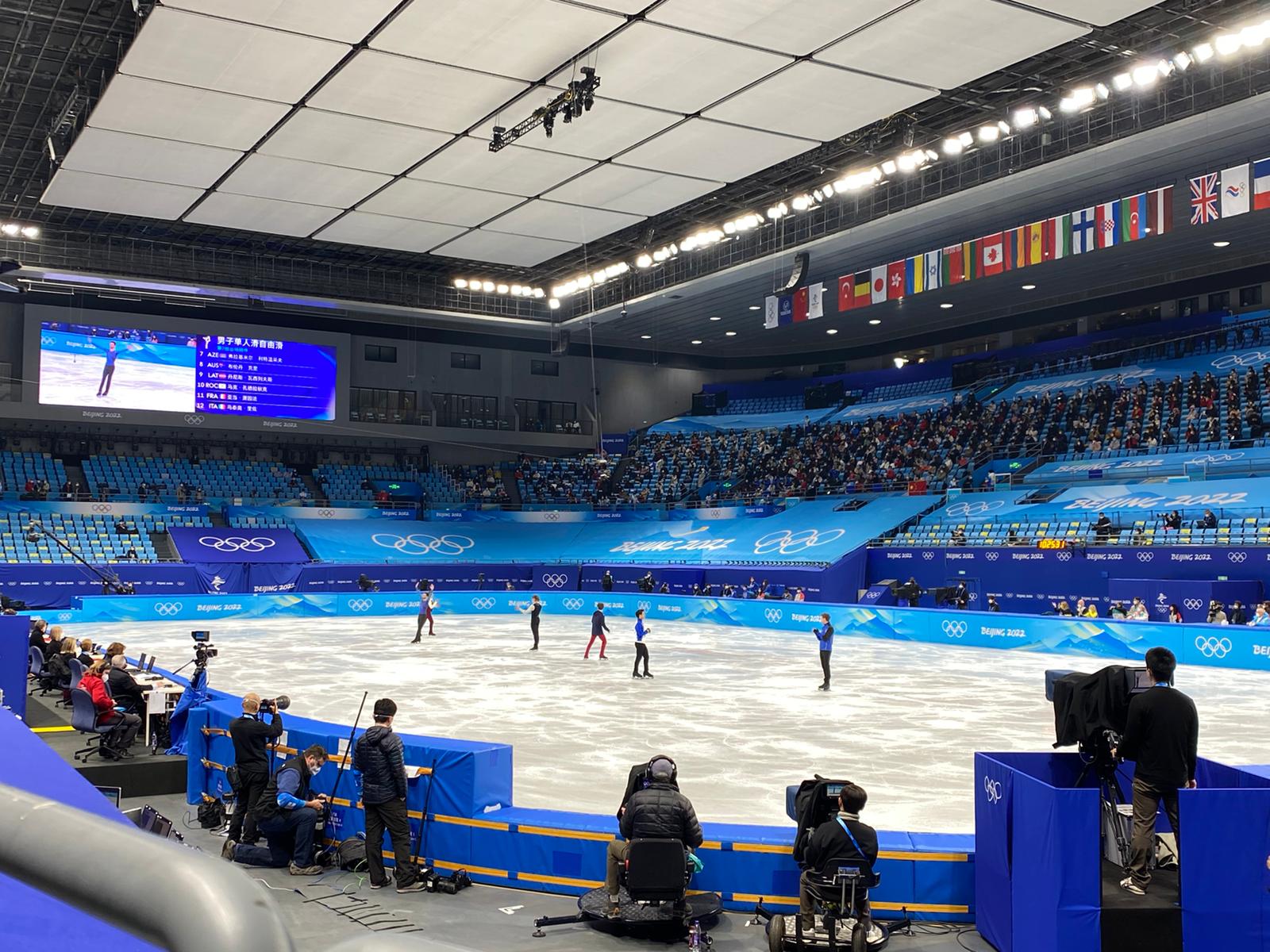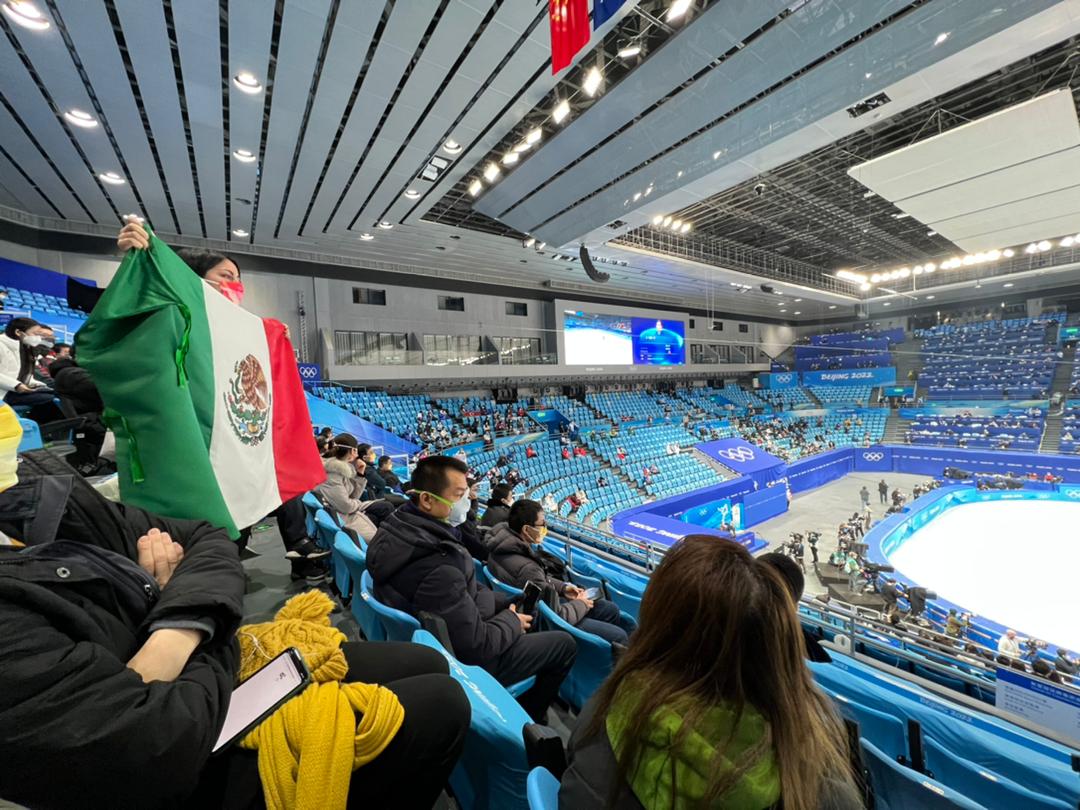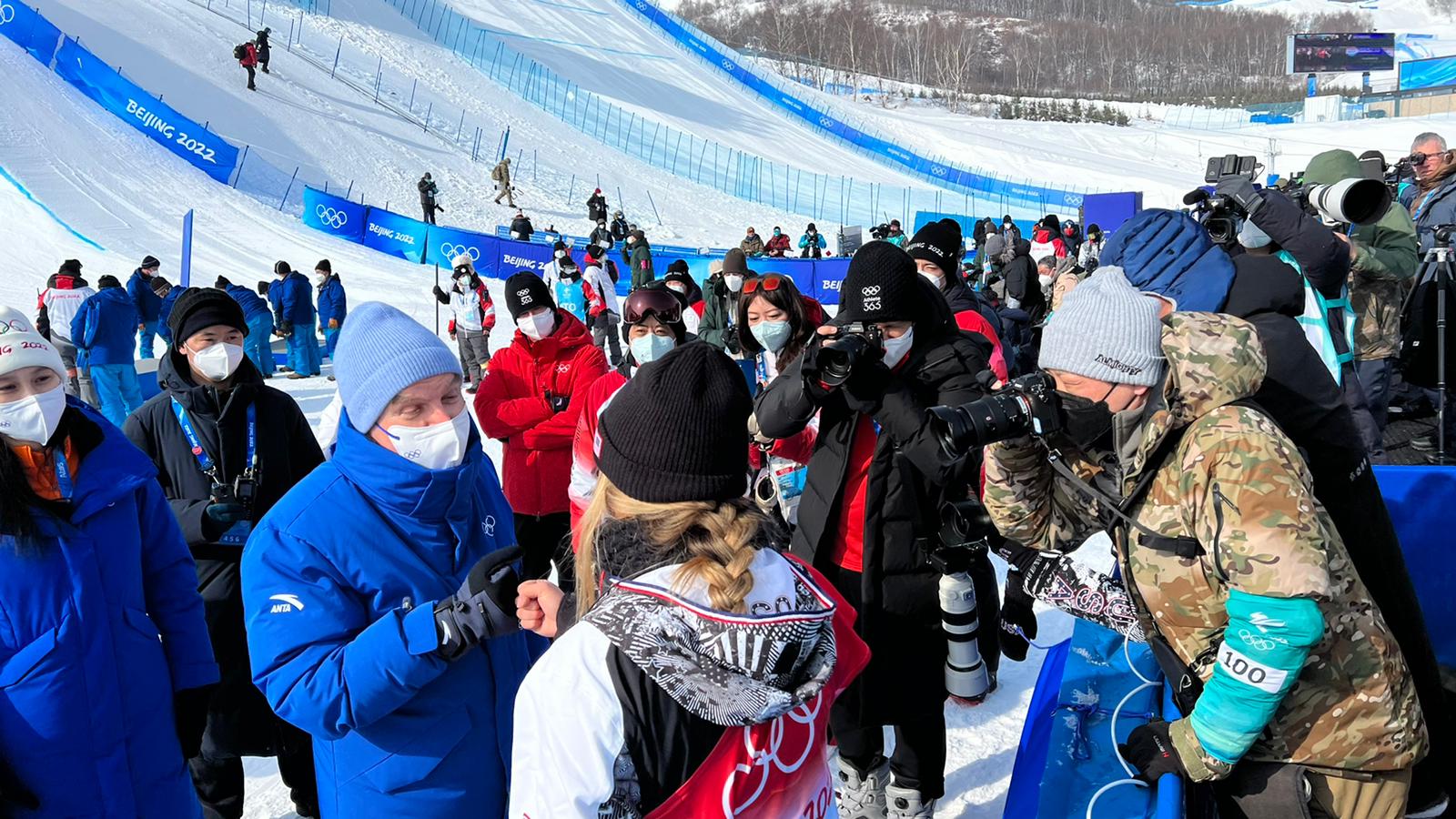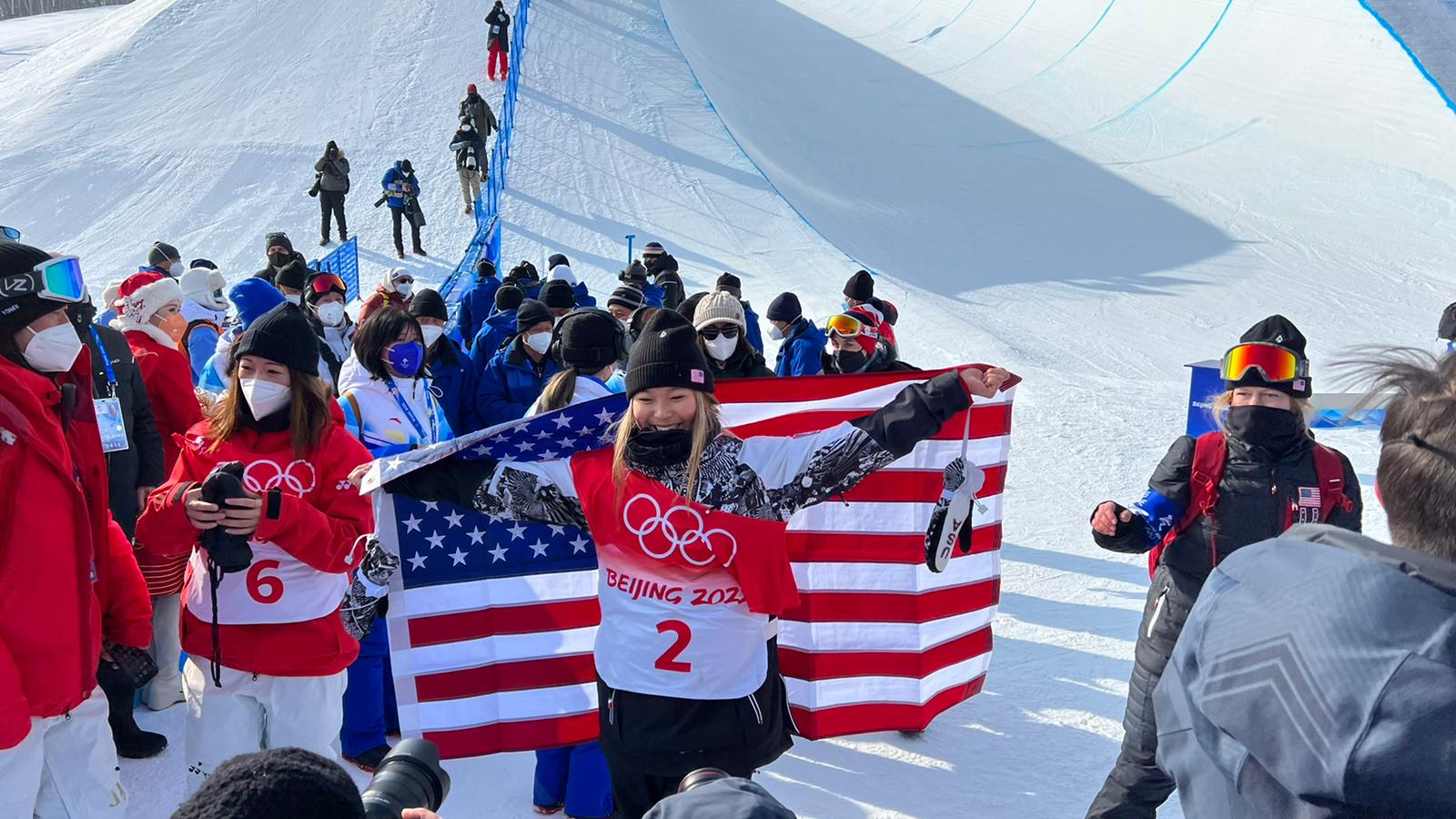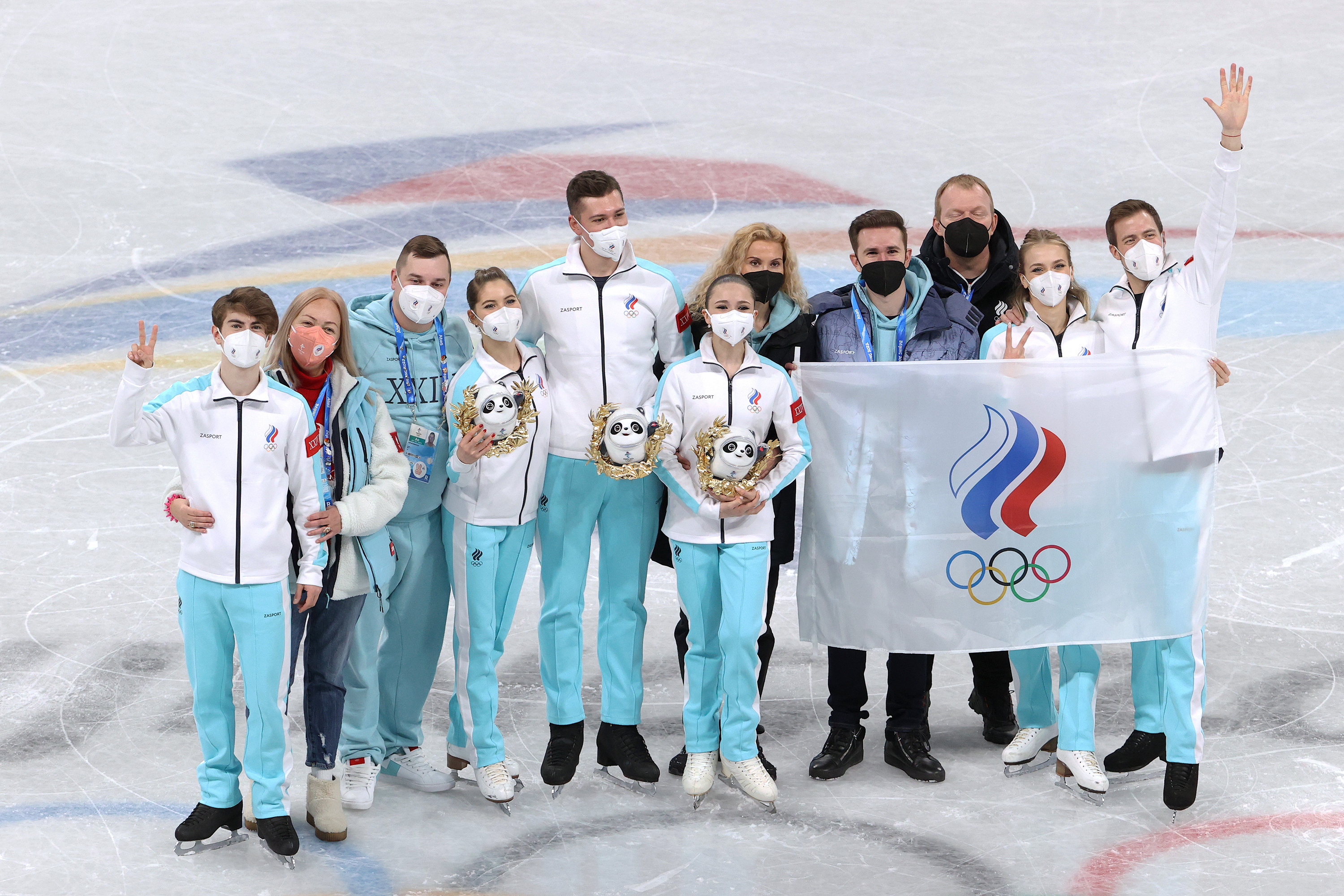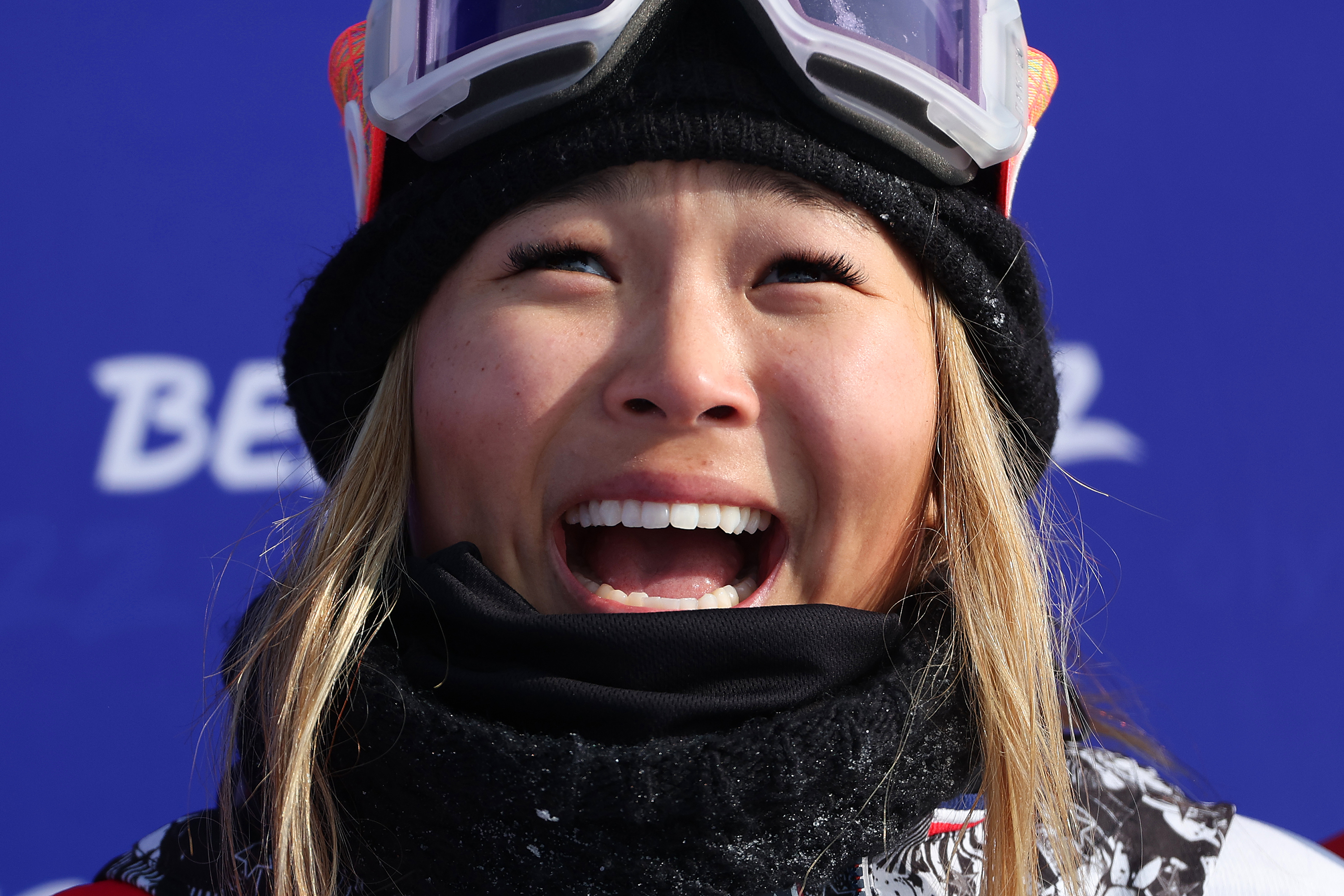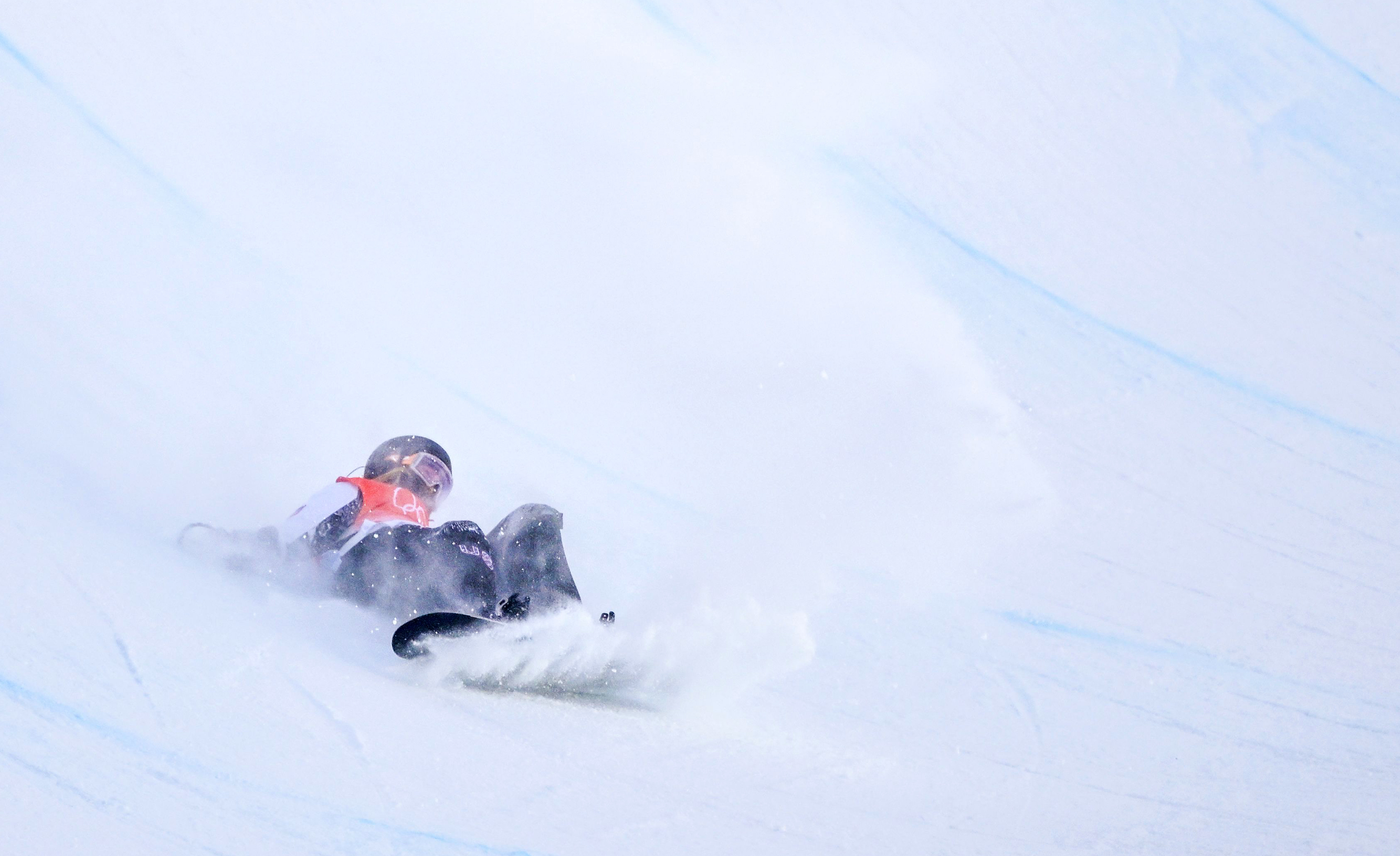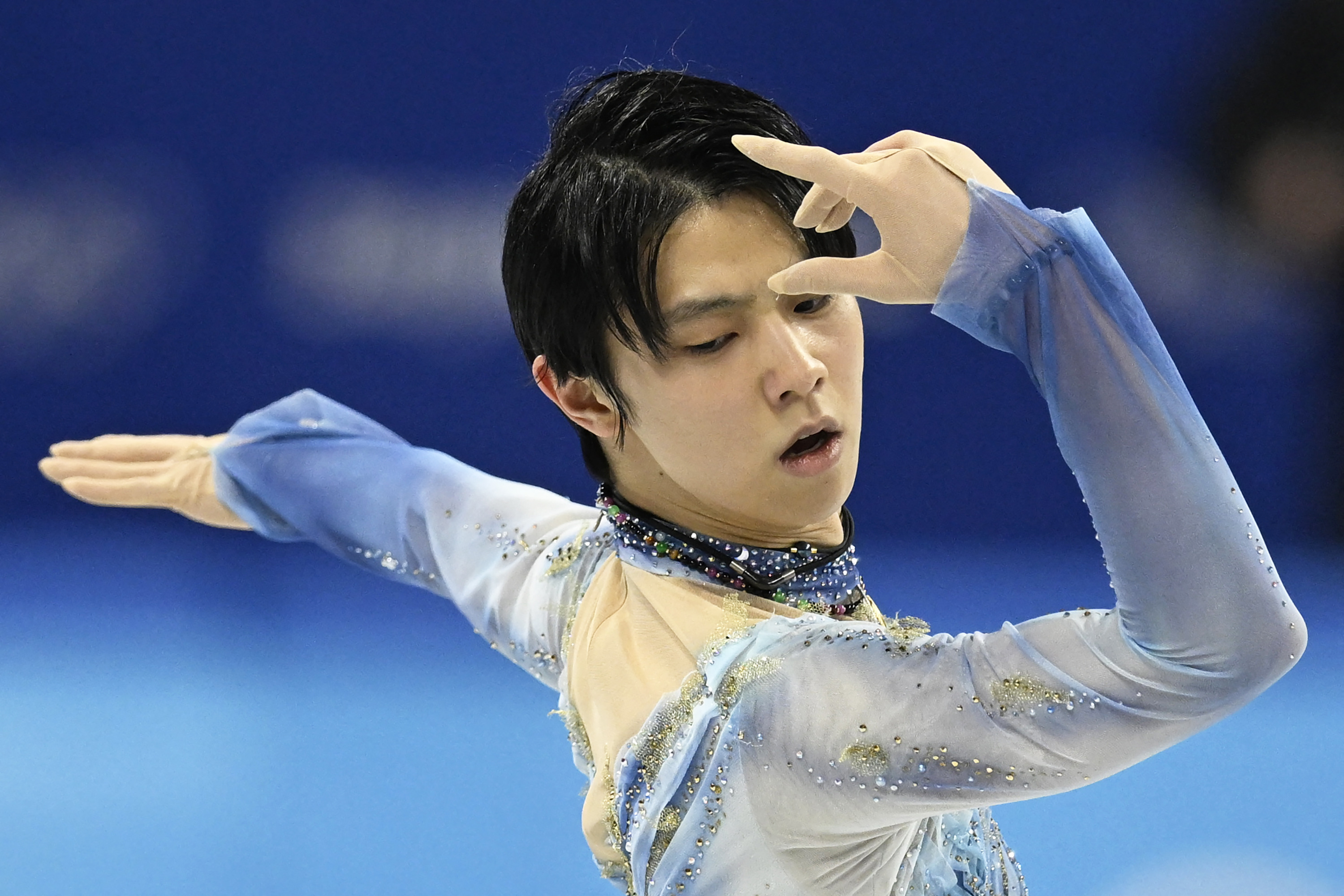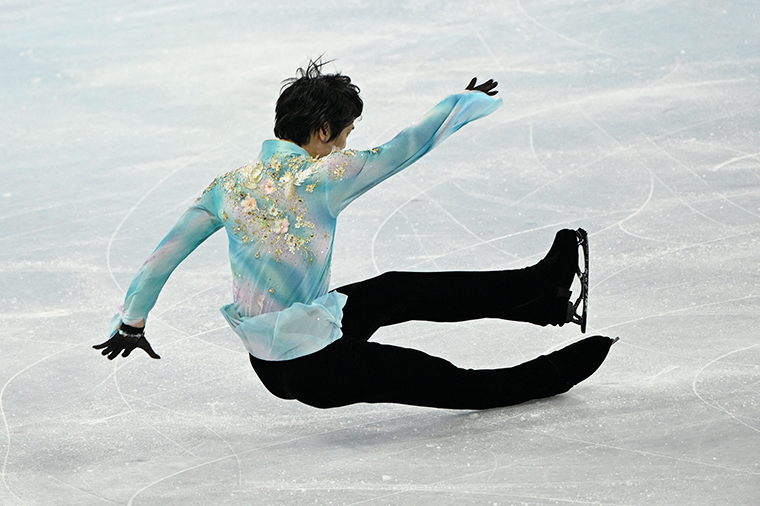
Japanese all-time great Yuzuru Hanyu fell attempting the fabled quadruple axel in his free skate Thursday — as he desperately tried to pull his score up.
The "Ice Prince" came into the competition in eighth place today after a sub-par show in the short program Tuesday.
The jump: The quadruple axel is a highly difficult skill that has never been completed in competition — and one Hanyu had not even managed to complete in practice before bringing it to the ice today.
It involves four and a half rotations in the air, and is the only jump in the sport where skaters take off facing forward, according to the Olympics website.
Hanyu fell a second time soon after when performing a quad salchow jump, but nailed the rest of his jumps and elements successfully for a final score of 186.06.
That score placed him at the top of the leaderboard — but that's likely to be a temporary reprieve for Hanyu. A number of skaters are yet to perform, including his biggest rival, Team USA's Nathan Chen — who's tipped to win gold.
Love from the fans: Hanyu is hugely popular as the winner of the same event at Pyeongyang 2018. He was greeted with loud applause in the stadium from athletes and Chinese spectators alike.
Before he started his routine, a Chinese child could be heard shouting from the stands, "Add oil" — a phrase of encouragement. The only other time the child cheered on a skater was for Chinese competitor Jin Boyang, according to a CNN reporter in the crowd.
After Hanyu finished the program, he bowed to the public, with fans waving Japan flags from the stands.



